Book Reviews by Genre: Classics
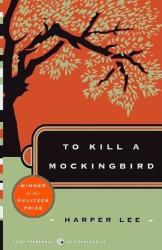
To Kill a Mockingbird by Harper Lee explores themes of race, justice, and morality through the eyes of a young girl in a small Southern town. Set in the 1930s, the novel follows Scout Finch as she grows up and navigates the complex social and political landscape of Maycomb, Alabama. The plot of To Kill a Mockingbird is both compelling and emotionally resonant. Lee’s exploration of racism and prejudice is nuanced and insightful, offering a powerful critique of the social and political systems that perpetuate injustice. The trial of Tom Robinson, which forms the center of the novel, is both tense and heartbreaking, with Lee masterfully building tension and suspense as the case unfolds. This novel is very heavy in symbolism and encapsulates the perspective and voice of a young, naive girl very successfully. I enjoyed the wide variety of characters, bits of humor, and overall depth of meaning and thought that To Kill a Mockingbird provides. Overall, it was a very thought-provoking and deep read, perfect for classic lovers and those who enjoy realistic fiction.
Reviewer Grade: 11.

Fahrenheit 451 by Ray Bradbury delves into the dangers of a society where books are banned and critical thinking is discouraged. The novel follows protagonist Guy Montag, a fireman whose job is to burn books, as he begins to question the oppressive society he lives in and seeks to uncover the truth about the value of literature. The plot of Fahrenheit 451 is both compelling and thought-provoking- Bradbury’s dystopian world is entirely possible, and his exploration of the consequences of censorship and intellectual suppression can be easily applied to modern times. The story is driven by Montag’s journey of self-discovery, which is filled with twists and turns that keep the reader engaged until the very end. Bradbury’s writing style is poetic and evocative, bringing the world of Fahrenheit 451 to life with vivid descriptions and metaphorical language. His use of symbolism is particularly effective, as he weaves in recurring motifs such as fire, the mechanical hound, and the phoenix to add depth and complexity to the story. The novel is also structured in a way that mirrors Montag’s journey, with the pace and tone shifting as he becomes more aware of the world around him. Overall, Fahrenheit 451 is a very thought-provoking and symbolic classic that really makes you rethink the value of intellectual freedom and education. Every time I read it, I recognize more symbols, hidden meanings, and references that really enrich my experience. I enjoyed this book very much and would recommend it to anyone interested in dystopian, mind boggling novels.
Reviewer Grade: 11.
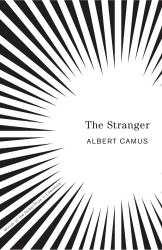
Against all odds, this book bored me. The Stranger follows an indifferent man shortly after the death of his mother, of whom he is accused of having no care or affection towards. Meursault is far too agreeable for his own good, and it pulls him into relations with Raymond, who seeks revenge on his lover for cheating on him. As Meursault cares little for the romantic or violent developments in his life, he relates these events to the reader in a painfully dull manner. Every description is matter-of-fact and insignificant; Camus reveals nothing else about the narrator until the very end of the novel. Until then, the reader is dragged painstakingly through a drab recount of Meursault's life as if it belonged in a dictionary. The book, thankfully short, seemed to stretch on far past its actual runtime. I do appreciate that Meursault can be funny on rare occasions, but never in a way that feels purposeful. Overall, I'm disappointed with this book, and I wish the non-feeling narrator had been written with more depth.
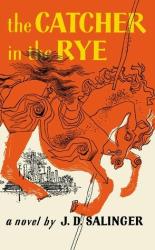
The Catcher in the Rye by J.D. Salinger is a timeless classic that explores the complexities of adolescence and the search for identity. The story follows the life of the main character and narrator, sixteen year old Holden Caulfield, over the course of two days after he has been expelled from prep school. Disillusioned and struggling to come to terms with the world around him, Caulfield's story is masterfully told through Salinger's unique and captivating writing style that immerses the reader in Holden's world and captures the essence of teenage angst and rebellion. This classic novel is unlike any other that I have read, containing several humorous instances and a main character with a very strong personality that kept me hooked. Holden's interactions with his family, friends, and strangers are both funny and poignant, highlighting the challenges of growing up in a world that often seems confusing and unfair. Overall. The Catcher in the Rye is one of my all-time favorite pieces of classical literature that resonates with many age groups and provides for a very interesting read. I have read this novel at least five times and have yet to tire of it.
Reviewer Grade: 11.
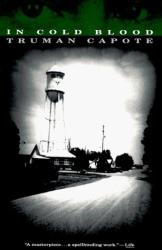
Truman Capote's In Cold Blood is a true crime account of the 1959 murder of the Clutter family in Holcomb, Kansas by the criminal duo Dick Hickock and Perry Smith. Capote's unique, journalistic writing style creates an intriguing narrative that blurs the line between fact and fiction. In my opinion, part one of four starts the book off a bit slowly, and Capote includes a lot of extra details that make the book seem longer than it is. However, once the book transitions into the backgrounds and motives of the killers and moves on from introductory information, it is quite a thought-provoking read. Capote's portrayal of the murderers is particularly fascinating because he delves into their motivations and psychological states in a way that is both haunting and insightful. This novel explores themes of morality and the American Dream, which are easily connected to modern day society. Overall, In Cold Blood is a must-read for anyone interested in true-crime and journalism, as it offers a unique and suspenseful account of one of America's most notorious crimes. I enjoyed reading this novel, although just one read was enough for me.
Reviewer Grade: 11.
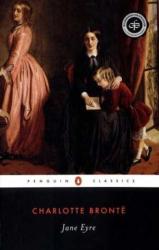
Charlotte Bronte's Jane Eyre is one of my favorite pieces of classical literature that explores the human experience through the story of an orphaned young woman, Jane Eyre, who remains steadfast in her beliefs despite the challenges she faces. Bronte's writing style is emotional and descriptive, immersing the reader in a detailed and symbolic representation of 19th century England. The novel's structure is well-crafted, with each chapter building upon the last to create a story that is hard to put down once you're reading. The character development is impressive, with Jane and supporting characters adding depth and complexity to the narrative. The novel explores universal themes of love, morality, and social class, making it a timeless classic that truly can resonate with any reader. Jane becomes a relatable character throughout the novel as she overcomes a variety of issues, and I found most of the drama she was involved in to be both intriguing and entertaining. Overall, Jane Eyre is a must-read for anyone who appreciates a good story or classic literature, especially one that explores coming-of-age and romantic ideas. Personally, this is one of my favorite novels across any genre as I have read it multiple times.
Reviewer Grade: 11.
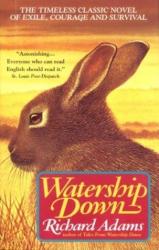
This is a book designed for lovers of Xenofiction (books from non-human perspectives). "Watership Down" is a book about a warren of rabbits. Hazel's brother Fiver has a disturbing vision that prompts him and others to leave the warren. Along the way they run into other, sinister warrens. Interwoven with the story, short segments describing the mythology of El-ahrairah ( a figure similar to Robin Hood).
Some may be familiar with the violent reputation of "Watership Down". This is an earned reputation. Although no main characters die, they do suffer grievous harm. Aside from that, there is a vivid and disturbing description of the original warren's description. However, I felt that the most disturbing parts of the books were the parts exploring the almost dystopian warrens the group meet. If you plan to read this book, keep this in mind. Do not read this if you are sensitive to violence.
If you can get past the disturbing content, this is an excellent read. The characters are incredibly charming. Hazel is an inventive leader, who sometimes acts recklessly to show off. Fiver is a timid rabbit who has glimpses of the future, based on the famous Greek oracle Cassandra. Bigwig is a gruff ally, who occasionally doubts Hazel's leadership, but has a big heart. The plot is equally as interesting, leaving me anxious at parts when things seemed to be going eerily well. The segments regarding El-ahrairah are also entertaining, giving insight into the rabbit culture.
All in all, if you aren't sensitive to violence, I would definitely recommend trying this book.
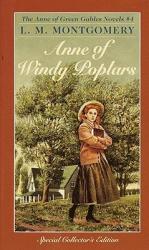
When Anne finishes her schooling at Redmond, she decides to start a new life away from Green Gables. She finds herself in her tower room at Windy Poplars, befriending two old widows, Aunt Kate and Aunt Chatty. She arrives at Windy Poplars looking for a job. She gets one as the principal of Summerside High School. Anne is then made aware that she was not the person they wanted as the principal, but they couldn’t find anyone better. Over time, Anne also becomes friends with the housekeeper, Rebecca Dew. Anne loves her students, but she greatly misses her lover, Gilbert Blythe, who is currently in medical school. Anne of Windy Poplars is a book in the Anne Of Green Gables series. It was less interesting and active than the other books, but it had a decent plot. I am a person who likes action and drama, but this novel did not satisfy me. Contrasting to the other books in the series, it was very drawn out and not very suspenseful. It left me with the urge to not continue reading. I want a book that makes me want to read more and never stop, but this did not meet those expectations. The only reason I kept reading was to keep the series going. I finally finished the book, and I’m glad I did. The storylines following Anne of Windy Poplars were much more interesting, but the books later on had flashbacks and connections to it.
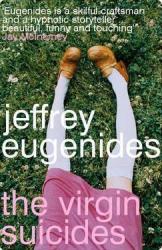
The Virgin Suicides is the elegy of the Lisbon girls, from the perspectives of the neighbors that are still haunted by them. The Lisbon family lives on a quaint suburban street in the Sun Belt, drenched in sunlight and white-washed shingles. Then one year, every Lisbon girl, starting with Cecilia and ending with Mary, commits suicide. This book is the observations and meditations of the boys across the street, the ones who loved them, who obsessed over them, who objectified them, and who watched them die one by one. The girls are doomed from the opening lines. The only question that remains is why they did it, and why our narrators can't let them go.
I read this book because I was told it was a staple of dark academia. It is not, no one here likes school. In reality, it is a treatise on girlhood, in all its insubstantial suffering. The first thing that struck me was the way the author sets the mood immediately. The entire book is dripping with malaise, the suffocating nature of sisterhood and parenthood on full display whenever the Lisbon house is described. The brief gasps of outside life are bright and crisp, while the references to the current day, middle-age life of the narrators is sad and listless. I wouldn't say this book is pleasant to read, but it is gripping in its complete commitment to its mood and setting. On that note, the choice of the author to tell the story entirely from outside perspectives was fascinating. The narrator is only described as "we", as the group of neighborhood boys who obsess over the girls in both childhood and adulthood. One conflict in the book is wondering if we are meant to sympathize with the boys who are scarred from the suicides, or see them as a commentary on the ways that the world seeks to capture and define teenage girls. I ended up seeing it as the latter, which likely made me view this book in better light than many of my peers. The boys actions always have an air of perversion about them, and at the end they seem to realize that all their breaches of privacy and decency have brought them no closer to understanding the girls. Another thing I liked about this book is the way that the girls are given a kind of privacy of thought from the narrators and the readers. Every attempt at scrutinizing their reasoning or emotions or motivations is always followed by a caveat. Nothing is certain with the Lisbon sisters, just the way nothing is every certain when we view the actions of others. The unknowability of their tight knit group gives them a dignity that their neighbors and community seem to want to violate constantly. This book is also a clear censure of suburbia. The neighbors try to do their best to help when they can, but still grumble amongst themselves about the Lisbon family leaving the leaves in their yard the fall after their youngest commits suicide. The great debutante balls and dances of the south are in full swing, but there is an undercurrent of corruption and distortion to the dancing and dating. The sexualization of the girls is also rampant, which, again, makes the book a lot harder to enjoy if you don't see it as a choice by the author in order to comment on it. In short, the suicide of the girls seems like a catharsis, a response to the disgusting and decaying world around them. Everyone around them represses their emotions, from their parents to the boys enraptured by them to their teachers to their peers. They are the only ones who get to set something free. The juxtaposition of the wailing EMTs to the quaint, straining neighborhood further demonstrates their freedom, even in their death.
This book did have problems. A lot of stuff is uncomfortable to read, even if viewed as a deliberate choice. The story often takes winding tangents that serve little purpose besides demonstrating the boredom and trivialities of suburban life. Still, the book is still a fantastic meditation on what its like to be a teenage girl, in all the wonderful and ghastly ways. I would recommend this book to anyone who is looking for good setting, shocking stories, and a good mystery to carry with them!
Reviewer Grade: 12
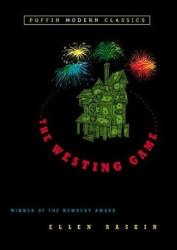
The Westing Game is a very eventful book with lots of twists and turns. It starts out as a novel about an old rich man who ‘died’, Sam Westing. All of his heirs live in Sunset Towers and are competing in a game he made. In his will, Westing claims that one of the people that resides in the tower killed him. All of his relatives get assigned another family member they have to work with as a partner. The groups start finding and solving clues, one leading to another and making each family suspect each other throughout the whole game. His heirs are hoping to gain control of his business and win millions of dollars through the game, which they will split with their partner. I really liked this book because of all the mystery and obscure details that lead you to the answer. Who set the bombs? Who REALLY killed Westing? Why did Turtle cover up for Angela? Did he even die? Are Sam Westing, Sandy McSouthers, Julian Eastman, and Barney Northrup hiding something? The suspense draws you in, and leaves you wanting more and questioning everything. I would highly recommend this book for any young and curious reader.
(Grade 7)
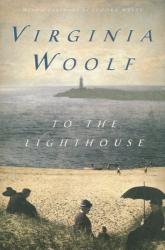
Sometimes, a trip to the lighthouse can take the entire life. Or our life is just one long journey to the lighthouse. Sometimes we don’t even realize how much we are in need of light that we see every night out of the window. We may not even notice how it directs us and helps not to get lost in this misty world. But what happens if this light disappears? We are left with two choices: either go on search of if, following the illusive glance, or find it inside of your soul.
Virginia Woolf’s novel “To the Lighthouse” introduces the readers to the Ramsay’s family and their friends, staying in the summer house in Scotland. As they are going through daily routines, we discover their personalities and stories, so different and unique. They agree and disagree with each other, inspire and discourage, give hope and take it away, create and ruin. Their days flow as usually until the light disappears from the house. It seems like it’s possible to turn everything back and keep the life normal, but everyone can’t help noticing the missing part, until the characters go on their own trips to the lighthouse.
The story is mainly written in a form of reflection. Virginia Woolf lets the readers see the characters and percept the world of the book through two of her main characters’ points of view. It shows, in an unobtrusive manner, how people depend on those whom they are surrounded with. The language of the book is figurative and complex, just as lives of its characters. It plunges the readers into such an atmosphere, where cold Scottish wind keeps your hands numbed, as you are walking down the coast, but the thought of someone caring about you does not let you freeze from inside.
An amazing book that will turn the time of reading it into a very special period of life
Reviewer Grade: 12
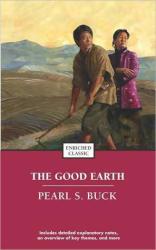
The Good Earth follows a man named Wang Lung accompanied by his wife, O-Lan. This story is told surrounding China in the early 20th century told in a classic rags to riches tale. Important themes are told through this story to express what China in the 20th was going through and challenges the people had to face. Some of these themes include the oppression of women and man’s relationship with the earth.
I have to admit, the first time I read this book I didn’t really like it. After talking to someone about the book, I decided to read it again and recognized its importance. Not only is the book informative, but it’s also an all around good book. There are many different plot points and character development pieces that go into this story. While reading it, it made me think… is this what people had to endure in China in the 20th century? Knowing this, it pulled at my heart strings a little bit. I absolutely love this book and would recommend.
Reviewer Grade: 8
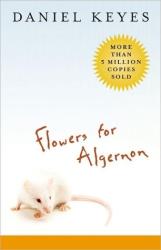
Flowers for Algernon is stunning commentary on the way society perceives intelligence and its connection to personal value. The creative liberties taken with this book to modify diction to match Charlie Gordon's knowledge create a more personal connection with the beloved narrator. I found myself celebrating the first time he used a comma or a metaphor. Although this book was difficult to read at first, I understand that those creative choices enhance the impact of the story later on in the book. The reason I wouldn't call Flowers for Algernon perfect is I feel some of the development in the middle diverted from his climactic conversations with the doctor and professor. The story seems to split into two at once: one of Charlie's emotional intelligence struggling to keep up with his knowledge, and one of his environment's reactions to his sudden genius. Though I enjoy both perspectives, I feel the conjunction creates clutter in what could be one flawlessly streamlined story. However, both stories are executed beautifully, and the journey of Charlie Gordon is both profound and emotionally charged. Flowers for Algernon is certainly a novel I'll mull over in years to come.
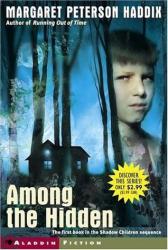
In a future where the Population Police enforce the law limiting a family to only two children, Luke has lived all his twelve years in isolation and fear on his family’s farm, until another “third” convinces him that the government is wrong.
The book is a dystopian world set in present day where teenagers are able to come together in crisis to try and change the government and let their voice be heard. I chose to read this book back in third grade and still remember to this day how good it was. The elements of the book were enticing and had me looking forward to what was next. It gave great arguments of why the government is wrong and how the rich, called “barons,” get to do what they want. As a kid I didn’t have any negative thoughts, and if I were to pick it back up, I would still have good thoughts about it. This book is part of the Shadow Children collection, with seven books in it and each of the books get better. People who enjoy adventure, plot twists, and exploring different perspectives would like Among the Hidden.
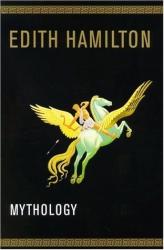
Mythology, written about Edith Hamilton, creates a timeline and family tree of the Greek gods and demigods. The book is based in small sections, so it is essentially a collection of assorted stories. For example, there is a section called "The Great Heroes before the Trojan War", and in that section there are specific synopsizes on Perseus, Theseus, Hercules, and Atlanta. I enjoyed the book because you can read it 5 minutes at a time because it does not take long to read a section. I recommend the book to mythology and history lovers alike.
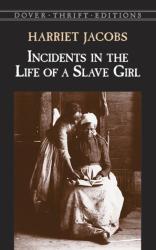
Incidents in the Life of a Slave Girl, written by Harriet Jacobs, is a memoir of the oppression of slavery that Harriet faced as a slave. The book starts off talking about the pleasantries of childhood, but when her owner dies, ownership of her is shipped over to Dr. Flint, who ends up being a predator and wants to procreate with Harriet. Harriet refuses, but Dr. Flint becomes so demanding that Harriet turns fugitive. Ironically, Harriet hides for seven years at her grandmother's house, just across the street from Dr. Flint's plantation. Eventually, an opportunity arises for her to escape North, and after doubts, she does and is successful. In the North, she works hard to bring her family out of slavery, and one of the ladies that she works for purchases her and sets her free. The tale is brathtaking story of relentless perseverance, grit, and tenacity.
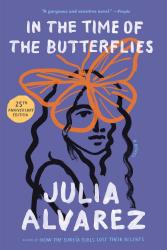
In the Time of the Butterflies by Julia Alvarez is a fictionalized account of resistance to the dictatorial rule in the Dominican Republic inspired by the stories of the three Mirabal sisters who were murdered in 1960. Alvarez expertly captures the terrorized atmosphere of living in a police state and the courage of a few to stand up in resistance. Despite the underlying anguish and dread, the novel is brimming with romance, hope, and faith as Dominicans try to find life under a dictator. Suppose you want a captivating novel enriched with courage, feminism, and intimacy and are willing to read a challenging narrative to stomach. In that case, this anxious page-turner will not disappoint.
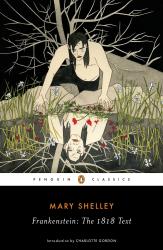
Frankenstein, a fictitious novel based Europe, details the account of a genius named Victor Frankenstein who creates a beast out of dead body parts. The beast then goes on to haunt him and kill everyone who Frankenstein loves. Frankenstein tracks the beast into the mountains and eventually speaks to him. The beast pleads Frankenstein to create a female beast, to which Frankenstein, comprehending of the horror that a lineage of beasts would survive, declines. The beast vows to kill every last one of Frankenstein's affections, and he does. Frankenstein is enraged and dedicated the rest of his life to tracking and killing the beast. The chase ends in the Arctic, where Frankenstein eventually dies. The beast sees his death and, with no more hope for a future mate, is overcome with grief.
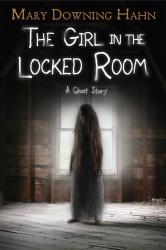
The Girl in the Locked Room is a ghost story written by Mary Downing Hahn. In a nutshell, this book is based on a strange girl who has been locked in a small room for many years. As the story goes on, many secrets unfold and all questions are answered with shocking twists.
I enjoyed the plot of this story. As simple as the setting is many secrets unfold throughout the book. The character (the girl) is extremely complex even though the setting is small. This isn’t my favorite novel by Mary Downing Hahn, but it is definitely worth reading in my eyes.
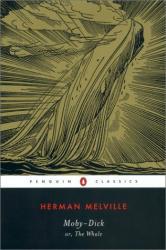
I, like most people, got wildly bored reading this book. Even then, it's one of my favorites. Moby Dick is a long and treacherous journey not for the faint of will, but lying at the end of the mud-covered path is a handsome bounty. For me, the ending of Moby Dick justified the means. Sprinkled throughout are interesting and bizarre chapters (and wise quotes on sleeping with drunken cannibals), but I believe the impact of the ending cannot be achieved without Moby Dick's arduous length. The hundreds of pages allow the reader to spend a massive amount of time with the characters (even if it's just Ishmael) and grow to appreciate the ship. Without that, the ending would fall miserably flat. So, despite the time it takes to read Moby Dick, the famous tale of a captain's monomania is one told beautifully.
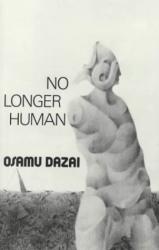
No Longer Human is a cultural phenomenon, widely known as the second most bestselling novel in the history of Japan. Within, Osamu Dazai explores the life of a man who feels that he has never been a part of humanity, and his desperate strivings to find a piece of happiness in a life full of terror and vice. The timeless, existential themes of the novel will haunt the reader past the last page.
I chose to read this book because I'd seen a lot of people all over the internet praise it as the saddest book they'd ever read. There are about a thousand videos and essays and think pieces about the depressing nature of this book, and how it can devastate and eviscerate emotionally. Weirdly enough, I don't see it. The book is definitely very sad, but to me it didn't extend very far beyond the other grimly written books about very sad people with very sad lives. However, the psychology of the protagonist definitely sets the book apart. Unlike other books of the same nature, this book cuts to the bone by showing the terrifying underbelly of humanity. The protagonist is paralyzed by fear because he comprehends what many of us forget: that we are at all times surrounded by our own apex predators. Each of us has our own deep desires that could stir us to violence at any given time. We lie and cheat and steal to get what we want, effortlessly wearing masks that can obscure our entire character and can last a lifetime. The protagonist isn't like other antiheroes of hardened books about the horribleness of humanity. He doesn't accept it, or rail against it. He is very much afraid of it, and does everything he can to get out of its way. The protagonist's perspective is also interesting in the way it views humanity. The detachment of the central character is clinical, and portrays the characters in an alien light. He is scared of humans, but he also doesn't understand them. He sees all hunger and desire as something strange, and he wonders how people can be so insincere so easily. But despite his abject horror of humanity, the protagonist is slowly transformed into everything he despises and cannot understand. Perhaps the most fascinating part of this tale is how the protagonist is dragged, slowly but steadily, into the grips of humanity's vices and horrors.
Despite the intriguing nature of the protagonist's psychology, I didn't find the rest of the book as interesting as I thought I would. I was likely just disappointed that after all the build up, this amounted to another very well done, very sad bildungsroman in the vein of Catcher in the Rye or Little Friends. There's also issues with the way the writer portrays women, but since everyone in the book is fairly dehumanized it doesn't bother me as much as I thought it would. All in all, No Longer Human is a fascinating journey through the most base natures of humanity, all through the eyes of a man who feels disqualified from being human. I'd recommend this to someone who wants something dark and strangely fascinating. I would not recommend this to anyone who is anywhere close to being in a bad place, or anyone who got annoyed by Holden in Catcher in the Rye. This guy is ten times worse.
Reviewer Grade: 12
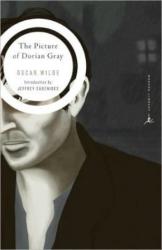
As a lover of writing, poetry, and pretentious philosophical tangents on the measurements of good art, I was bound to enjoy Wilde's only novel. The Picture of Dorian Gray is a beautiful tapestry of tragic corruption and its devastating effects. Albeit at times Lord Henry seems to ramble on about entirely uninteresting subjects, the overall experience of the book is short and sweet. The prose is flowery and elegant; the interactions between characters are brief but natural. Major character development occurs off-screen, which was disappointing, but within 160 pages one can only fit so much. Ultimately, I greatly enjoyed the ride, and The Picture of Dorian Gray has cemented itself as one of my favorites.
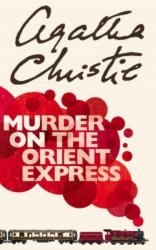
Murder on the Orient Express is a compelling Christie mystery. The book is steady and methodical: after the initial inciting incident, each of the passengers are questioned in order. Then, the evidence is reviewed and the conclusion comes easily to the detective. This novel was a straightforward, easy read, but I found it was better enjoyed by just sitting back and reading. Formulating theories, from the perspective of the reader, is relatively difficult due to key details being under developed when first introduced in the book. Therefore, the detective is better informed than the reader throughout the mystery, which took away some of the intrigue for me. Ultimately, however, the ending was satisfying, and Murder on the Orient Express is a well-written, captivating read.
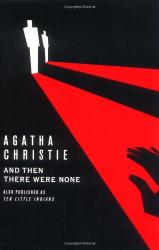
Any fan of mysteries should read And Then There Were None because it is such a wonderfully refreshing book. It is understandable why the book continues to have an impact decades after its release. Following And Then There Were None is not that difficult. Yes, it's a mystery, so pay attention (or at least keep track of who's passing and when), but the book doesn't aim to mislead its readers with unusual text. Guilt and justice are two of And Then There Were None's themes. Every visitor taken to the island is charged with an unfounded murder. As the death toll climbs, visitors struggle in various ways with their own personal emotions of guilt. Justice Wargrave's confession clarifies the notion of justice. Those who loved And There Were None like me should read more of Agatha Christie's work or if you want to read a book similar to And Then There Were None I recommend The Guest List by Lucy Foley. Overall, I loved Agatha Christie's novel And Then There Were None because of how it always kept readers on the edge.
Grade: 8th
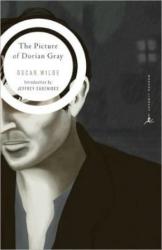
At first, I only picked this book as a classic for school, but I quickly learned it's a classic for a reason. I'd known of the general plot of the novel where a portrait reveals the ugliness of the inside of a man while he remains young, but the way it's written and described makes the full story. The story starts with painter Basil basically putting so much work and devotion into a portrait of Dorian Gray, the painting comes to life. Dorian wishes to stay forever young, and the painting reflects his evilness (vanity, etc.). I enjoyed the sense of mysticism and how everything connects to the theme of appearances are not what they seem. Dorian looks beautiful, but his actions (the thing that makes a person) are grotesque and horrid. The gothic fiction genre is reflected by the dark evilness of Dorian's actions and the magic of the portrait. This book is my favorite class I read this year and the plot surprised me with the characters always returning and a sense of incompletedness when characters leave. If you're looking for a medium-read classic with thought-provoking ideas, then this is for you!
Reviewer Grade 12
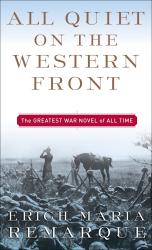
All Quiet on the Western Front by Erich Maria Remarque can solely be described as an ingenious masterpiece. The book, a historical fiction novel, was written in 1928 about German soldiers' experiences during World War I; Remarque used his experiences as a german soldier to accurately portray the terror of war. The main characters, Paul Bäumer, Albert Kropp, Franz Müller, and Ludwig Behm, are remarkably realistic and, throughout the book, go through changes caused by the nature of war, essentially turned into humans run by animal instincts. Throughout the book, Remarque ripes away any possible notion of romantic ideas relating to war and perfectly encapsulates the true terror of war. Overall, I wholeheartedly believe that everyone should read this masterpiece.
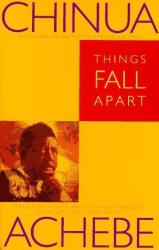
Things Fall Apart by Chinua Achebe is considered a literary masterpiece, with its unique perspective on colonization that isn't always told. Okonkwo, the main character with three wives and the memorable reputation of a great wrestler, has a great fear of losing any part of this status and ending up like his father. This fear is realized when Okonkwo is exiled (for an ironic crime) and returns to find his community overrun by Christian missionaries. They bring a seemingly-noble message of salvation, but it is only a matter of time before blood is spilt. Learning about Ibo culture through this book was a really cool experience, so I don't regret reading it. But, why is it that "classics" always have to include raging misogyny? Okonkwo almost constantly beat his wives, and despite this technically being historically accurate, I found the repetitiveness to be unnecessary. Despite this, Achebe's use of language, such as proverbs to create a story that feels like a fable, was something that I haven't seen before. Gaining a new perspective throughout reading Things Fall Apart was an experience I think everyone should have.
Grade 12
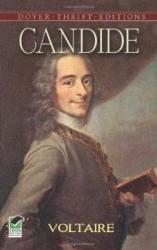
The novel “Candide” is a satire on the philosophy of optimism given by German philosopher Wilhelm Leibniz. The concept of Optimism suggests that everything is going to end well in this best world. It was written by Voltaire, one of the most famous and well-read novelists in the world. The word "Candide" means an innocent, simple, and kind-hearted person. The protagonist of the novel traverses across the world and comes across many disasters and faces many hurdles. Pangloss defends optimism by saying that everything happens in this best world for a reason, and it doesn't matter whether it is good or deplorable.
The story opens with Candide, who lives in a noble castle. In the beginning, he is a strong believer of his master's optimism. But as the story proceeds on, Candide gradually begins to doubt in optimism when he is expelled from his castle for loving the daughter of the Baron. After that, another incident happens as the Bulgarians attack the castle of Baron and burn it to the ground, and they massacre all the ladies and children without mercy. After having seen all this, Candide is forced to say that if this world is the best, then why are all these disasters happening to those who don't deserve to be punished? Optimism is useful, and he calls it
"The mania of maintaining that everything is well when we are wretched."
After being expelled from his hometown, he enters the country of Eldorado and receives a very warm welcome from the people of this country. Here, the people nature lover, and their behaviour towards guests is very good and polite. This place is full of beautiful, prodigious mountains, green fields, people love each other, and Candide falls in love with this place. They are with four soups and two roasted monkeys for dinner without taking money. Candide thinks Pangloss was right: all is for the best. The dilemma of Candide about optimism goes on throughout the novel.
Candide offers us some significant themes. Let’s discuss those one by one. On many occasions, the cruelty of people can also be clearly seen in this book. For instance, on his way to Suriname, he sees a physically impaired negro. Candide asks him who did to you?, and the negro replies that we are given only a pair of cotton drawers as clothing twice an year. We work in sugar mills, and when we are tired of working and try to run away or refuse to work, they (white men) cut our legs and hands. We pay this price for the sugar you eat in Europe. His sorrows wrench us when he says animals are also less miserable than we are and he questions we too are human beings and the children of Adam, then why are we treated so horribly?
The tale of an old woman is also very painful. She is the daughter of Pop Urban X and the princess of Palestrina. She is a beautiful lass of honour with blue eyes and curly hair. While she is travelling with her mother to another place named Gaeta, they are attacked and captured by a Salle pirate. It is not easy for a princess to be taken with her mother as a slave to Morocco. She is still a virgin, but doesn't remain long. The flower that was reserved for the Prince of Massa Carrara is now perished by a negro who thinks he is doing her a great honour. Her mother and other women are raped and torn into pieces by these scoundrels.
Candide is a kind of character that shows we should not lose hope or impulse to reach our destination. For instance, Candide is kicked out of his castle because of his love for Cunegonde, whom he adores so much. then it is also reported that Cunegonde is dead, but he doesn't believe it, and after struggling for a long time, he finds her again and loses her again, but at last he marries his buff because he was determined to find her and never gave up.
The same whimsy is highlighted by Mian Muhammad Bakhsh in his tale “ Saif ul Malook”. The prince falls in love with a fairy named “Badi u Jamal”and sees her in his dreams. He sets out on a journey to find her, even though he doesn't know where she lives. His determination leads him to his fairy.
Giving power to someone over others makes people evil. The person to whom you give power will begin using it against others. As Shakespeare says:
"Power corrupts, and absolute power corrupts absolutely."
With great power there also comes great responsibility. According to the testimony of philosophers, exalted rank is very dangerous. For example, Eglon, the king of Moabites, was murdered by Ehud, and kings like Zedekiah and Jeconiah were made slaves. They all were perished because they had used their power for dark purposes. At the end of the day,
"We have to cultivate our garden.” (Voltaire)
Men are never contented with what they have, and their greed is unlimited. I think Tolstoy was right.
"Men are greedy by their nature."
After becoming the Prince of Persia, Candide rewards significant scientists and literary but they are still not satisfied and happy. Candide is quite with human nature and knows that men will never be satisfied with whatever they get because of their greedy nature, which cannot be changed easily.
In short, Candide is a master piece of Voltaire, and effects its readers deeply. Before reading it, I was desperate to know Voltaire's view on optimism. I enjoyed it a lot and might read it again because of its readable and diverse meaning under the layers.
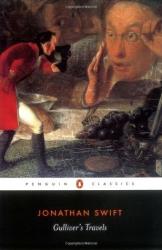
Part of the reason I rated this book low is because I had high expectations. I read an abridged version as a kid and I thought the general story was cool. Part of the reason I rated this book low is because Swift fills the reader's head with unnecessary details until important plot points are lost in the middle of description paragraphs. The events that take place in Gulliver's Travels are interesting, sometimes clever references to 19th century politics and general social commentary: Gulliver passes through a variety of islands with caricatured citizens. Although I do not expect Gulliver or the citizens of these islands to be developed characters, as their only purpose is to serve as a means to tell the story, the intrigue of the plot dissolves when paired with Swift's writing style. Swift is a meticulous writer who insists on heavy descriptions of every detail and, consequently, there is little to no stylistic separation between key points in the story and the personal life of a particular citizen. Gulliver's Travels is also a relatively short read at around 300 pages, so it is fast-paced compared to other books written in similar detail, which further muddies the plot. The dialogue in this book is also near nonexistent; I can't recall a single line. When Swift means to relay information between characters, he will most often do so in paragraph format. As someone who usually enjoys classics, I am disappointed to say I really only valued the skeletal plot outline rather than the book itself.
Grade: 11
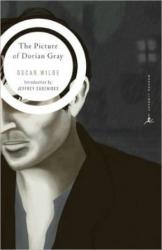
Imagine what could happen, if people possessed magic mirrors that reflected not their faces, but their souls? Dorian Gray, from the novel by Oscar Wilde, gets a chance to fully experience it.
An artist, Basil Hallward, paints an incredibly realistic portrait of an even more incredibly handsome young man. As he’s still innocent, the picture reflects just his appearance, but later, when Dorian starts doing cruel and ugly things, the portrait begins changing too. Every sin, every crime against the other human reflects on the face on the canvas, adding more and more ugly wrinkles, spots and ulcers. His own face, however, stays unaltered, always fresh and young. The portrait shows not what he looks like, but what he truly is. Finally, when Dorian kills the artist, he reveals the picture and the face of an old disgusting man on it.
The entire transformation proves what a high price one has to pay in order to realize his wish to stay young and attractive all the time. Under the influence of his old friend, Dorian loses his life guides and devotes his time to looking for new enjoyments. He does not understand that true beauty comes from the inside. It’s not necessarily visible. It’s not on your face, it’s in your thoughts, words and actions.
The novel is written in magical realism, so even the most incredible plot turns feel like something natural. It involves from the first page and makes the readers go through all the transformations together with the main characters.
Reviewer Grade: 11